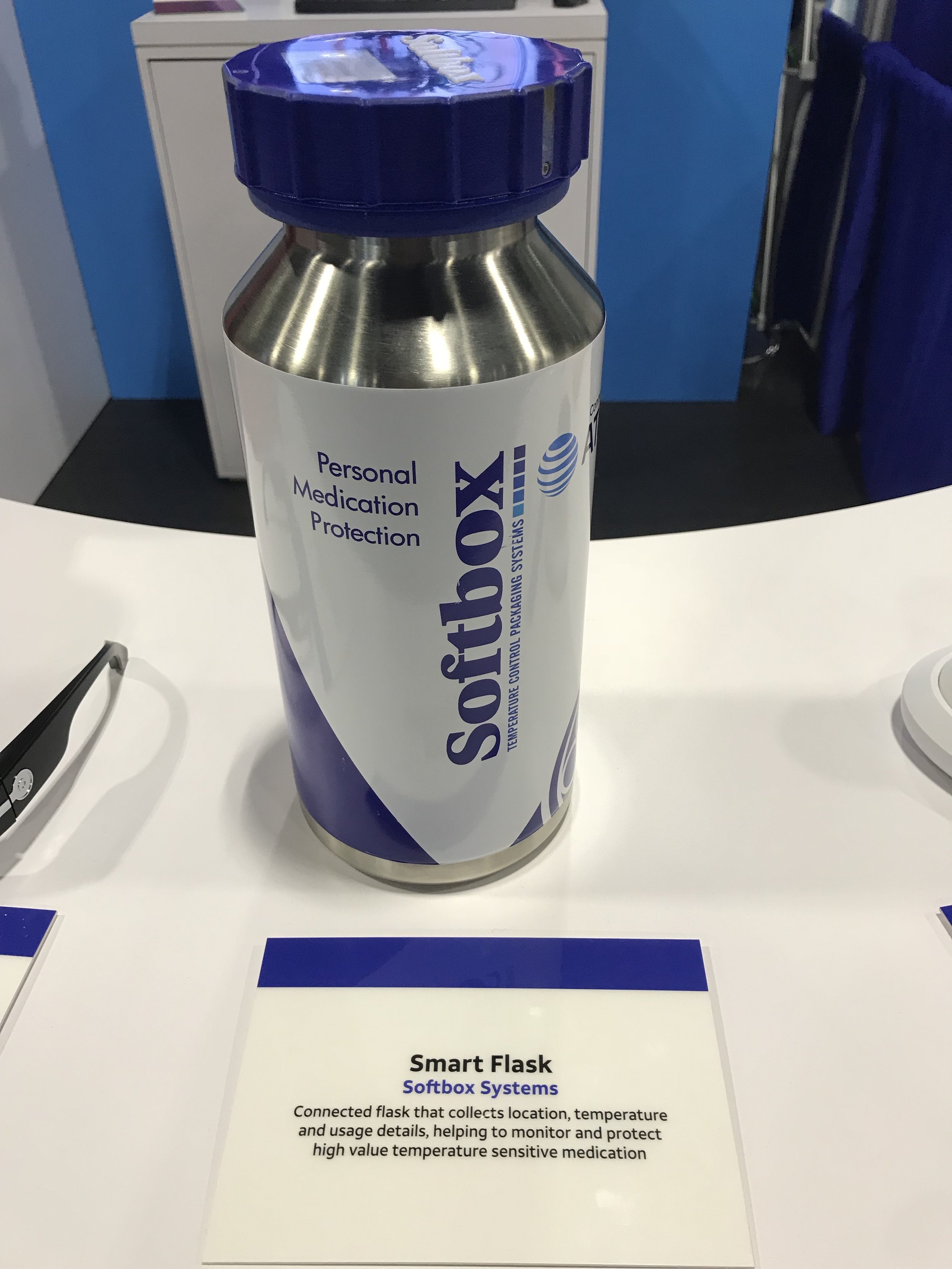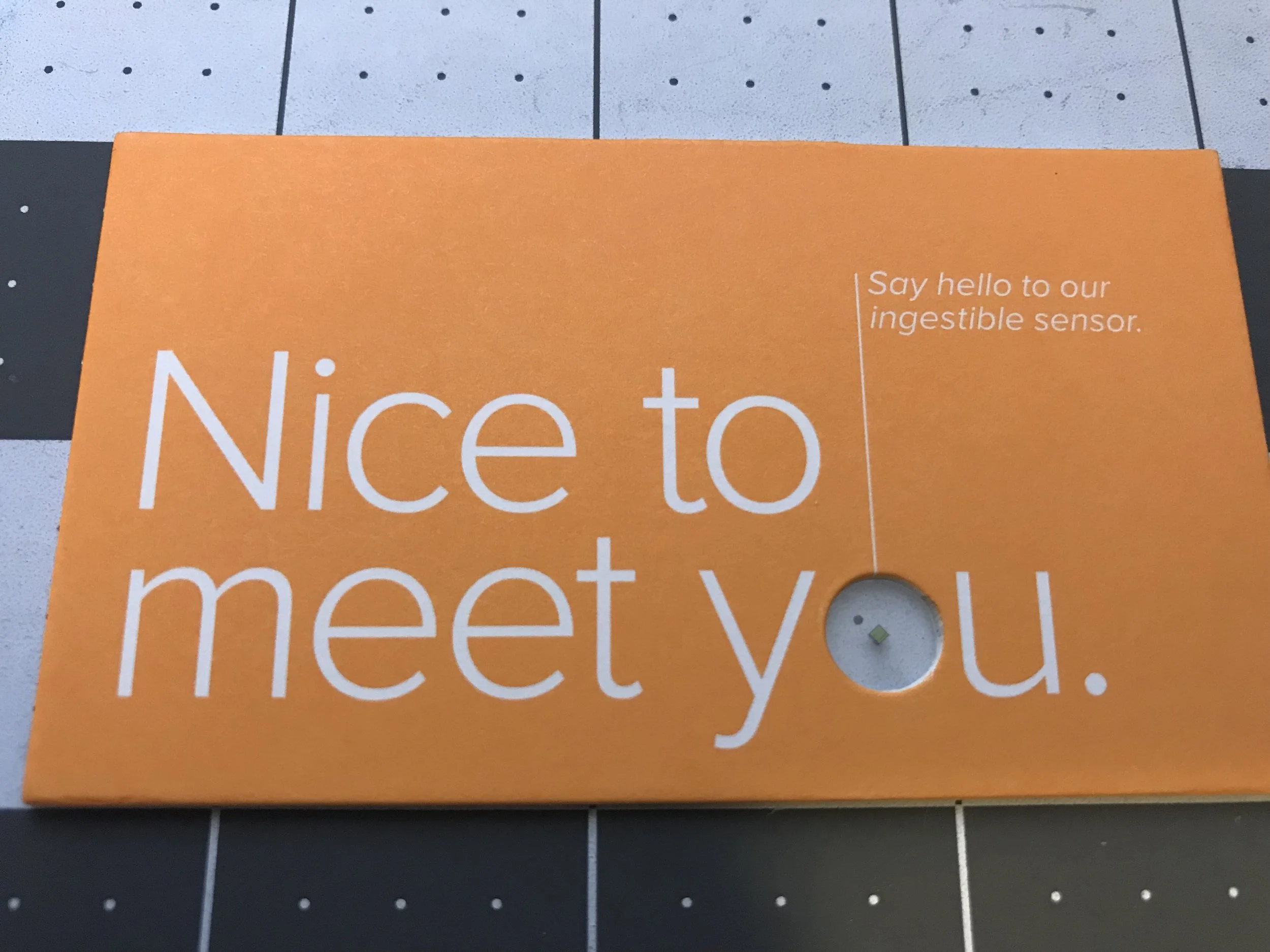Connected Health Conference 2018 - Information for Pharmacy
What Matters to Pharmacy
Company updates, insights, and new opportunities
This year I finally got to attend the Connected Health Conference in Boston, MA, which had over 3000 attendees and 300+ speakers from multiple areas focused on the use of technology in patient care. The emphasis this year related a lot towards teleservices, voice assistants, and the growing role of digital therapeutics in patient care.
Nonetheless, I focused most of my time looking to see what companies had products or services that could really play a role in the pharmacy space, and this is what I came up with based on vendors and discussions with others.
Medication Adherence Companies
Interestingly, I found a number of new companies to add to my list of digitally enhanced medication adherence products coming to market. One was by Zewa Inc, who produce a B2B product (carried by most wholesalers like Cardinal) that has a smart pillbox (4 containers) that can hold blister packs. Interestingly, it seems that some pharmacies are already using the MedWell Smart Pill Box for medication management services in their pharmacy. Essentially, they give the boxes away for free, and package all the blister packs for the patient and will provide monitoring on adherence and contact the patient if they start missing doses. Seems a service that would serve a piece of mind for children of older patients on multiple medications looking for another option than refilling their parents' pillbox every week.
Another company was new to me was Mevia, a Swedish-based company, who were making smart blister packaging products. I got to talk to their CEO, Jasper Hassel, who showed me a new product they have created. Essentially, it's a traditional medication compliance blister pack, but with (what I assume) to be embedded sensors that fit on a circuit on each breakout section on the package. So, when a patient/caregiver opens up a blister section, it disrupts the circuit, which then signals that the drug (was likely) taken by the patient due to removal. It's rather cool, and I think will have some potential uses. Looking at it, my only concern is the package gets damaged during shipping or misuse, and a circuit is broken unintentionally which could give false readings. But again, its something they are making and improving upon so I expect the kinks to be fixed. I always wondered why this wasn't a mass-produced thing, such as in OBC packaging, and Jasper helped fill me in on the issues of production and costs which I think has really kept many from trying in the past. I hope they can make it work!
Next is Baswen, who was showcasing a new smart pill bottle. Now, their product is vastly different compared to any other smart pill bottle I've seen at this point and left a good impression on some smart design aspects to consider for other companies. First, where most smart pill bottles rely on the cap of the bottle to be removed to indicate a dose was [inferred] taken, Baswen uses an embedded cap that shows when the bottle is tipped over to drop out a pill (think Tic-Tacs or see their diagram here), the pill will enter a chamber and send a signal it is being dispensed. It's rather cool as it allows only one pill at a time out, and reduces the need by a patient to remove the cap. I can think of some good use here for the elderly population.
The cap is 3D printed and has a temperature and sensors built into it.
Other companies present worth mentioning include Medisafe, whose new SVP Payers representative, Sanjiv Luthra, was present. We had a good talk about adherence and excited where they take Medisafe soon with their Apple partnership. Wellth+ was there, though they didn't have a demo to showcase at that point, so I didn't get to see it running, though I think they will have some interesting data to present in the near future. Lastly, Groove Health was present, which is an adherence app platform focused on nudging behavior to improve adherence. They are somewhat new, so worth keeping an eye out on what they end up doing.
Lastly, while not a medication adherence product, I came across something at the AT&T booth featuring a product form Softbox Systems called the Smart Flask. The Smart Flask (easily larger than a gallon milk jug) reminded me of a giant insulin vial, and when I opened it up, it had a large number of insulin pens inside a sealed temperature contained container. Now, the AT&T booth was featuring IOT powered devices, and what the vendor explained to me was that the Smart Flask was developed to help deliver medications in a controlled environment over vast distances. Apparently, they were dropping these things in Puerto Rico after the hurricane damage, and if you want to read more about their overall experience give this a read, quite interesting stuff!
Digital Therapeutics Expansion
I cannot overstate how much DTx has grown in the past few years. I am actually working on a section of this website to quantify what companies are in the space and what they are doing. To be quite honest, the last time I looked 3-years back there wasn't much, but now it's HUGE. In any event, one area that I think really focussing on is Proteus Digital Health.
Got this awesome business card from Dr. Savage. You can see the sensor embedded in tablets in the ‘You.’ I probably will bring it into the lab and see what it looks like under a microscope. As you can see, it’s way smaller than a grain of sand!
I got to sit in a session where George Savage, MD, Co-Founder and CMO of Proteus was talking about what they are up to. The most exciting news is their partnership with Desert Oasis, where they have clinical pharmacists using the data collected from Proteus bioingestible sensors to help with medication management. In all honesty, I really expect Proteus to lead a lot for medication adherence and monitoring for pharmacists to utilize soon. Which brings me to the next item...
Telemedicine and CPT 99091
There are so many companies using virtual software to supply IoT devices in patients homes for monitoring and guidance of care. The issue is cost, with much of this stuff still expensive, and reimbursement rates low.
BUT! The big talk was about CMS change to Remote Patient Monitoring (RPM) reimbursement rates. Now, physicians are being targeted, but there is a lot of talk of getting pharmacists into CPT code 99091, which would allow us to bill for remote monitoring. Why do I care? Well, take companies like Proteus and others that are creating devices that can provide medication compliance monitoring. If pharmacists can package, monitor, and guide patient adherence beyond just filling the medications and getting reimbursed for the volume of sales but for clinical services, we have a genuinely new form of business model to tap into. Companies that are using these smart pill bottles/boxes to get patients int he door as a 'nice service' now have a means of bringing in more profits. To me, this is the future of pharmacy and what I really took away from the conference as a potential to really change the community practice soon.
Thank you for reading and would appreciate any comments!





